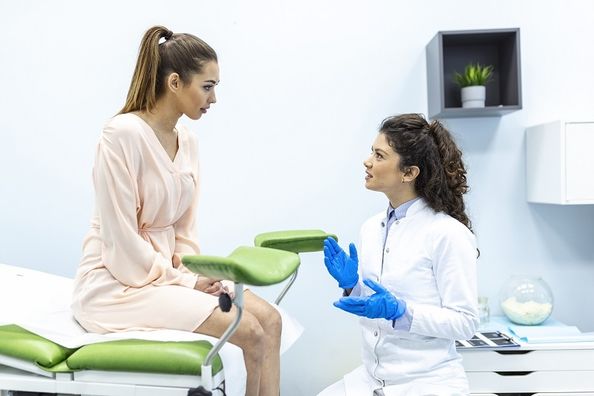As a young adult, chances are that sex has been on your mind at some point. But have sexually transmitted infections also been at the top of your mind?
Sexually transmitted infections (STIs) are infections or conditions that you can get from sexual activity that involves your penis, vagina, anus, or mouth. They’re especially common among teenagers and young adults, with about half of new cases in the US occurring in people ages 15 – 24.
The reasons why STIs are more common in the younger crowd are varied, from not knowing enough about STI prevention and having multiple partners to not realizing just how serious an STI can be for a person’s health. They can also quickly spread if people aren’t tested and then have sex with a new partner, unknowingly passing the STI on to that partner.
The good news is that there are plenty of ways to prevent the spread of STIs if you’re sexually active, like using condoms or reducing the number of sexual partners. And while STI testing might seem more after-the-fact, it’s actually one of the best ways to prevent spreading STIs in the future. It can also mean that you get the care you need before the STI takes a major toll on your health.
Unfamiliar with STI testing? Here are answers to some of the most common questions about getting tested for STIs.
Which STIs Can I Get Tested For?
There are many types of sexually transmitted infections. Certain STIs can cause symptoms like frequent or painful urination, vaginal discharge or odor, itchy genitals, or painful sex.

Also read: What Your Vaginal Discharge Says About Your Health
Some of the common STIs you might get tested for – and what they can do to your body if left untreated – include:
STIs Caused by Bacteria:
- Chlamydia, which can seriously damage your reproductive system
- Gonorrhea, which can spread throughout your body and cause swollen or painful joints, liver inflammation, and even damage to your heart valves or brain
- Syphilis, which can damage your brain, heart, and other organs
- STIs Caused by Viruses:
- Human papillomavirus (HPV), which, depending on which strain of the virus you get, can lead to cervical cancer
- Herpes simplex virus (commonly known as herpes), which can’t be cured but can be treated to help you manage symptoms, make outbreaks less frequent, and decrease the risk of spreading it to others
- Human immunodeficiency virus (HIV), which attacks your immune system and could lead to acquired immunodeficiency syndrome (AIDS). It can’t be cured, but there are treatments to keep your immune system healthy and significantly lower your risk of passing it to others
If I’m Not Having Symptoms, Do I Still Need to Get Tested?
With or without symptoms, untreated STIs can cause serious damage to your body and even make you vulnerable to life-threatening infections or diseases. If you don’t get tested you might not get diagnosed until you have had the infection for a while. This can make it more difficult to treat, and you may have passed it to others before you knew you had an STI.
The Duly Care Team is here if you need any help practicing safe sex, whether that’s correct condom use or if you just want to discuss your STI risk. Schedule an appointment with your Duly primary care provider today.
When and How Often Should I Get Tested?
Since the damage to your body from untreated STIs can happen over many years, it’s best to catch STIs in their tracks.
Here are general recommendations and considerations about when and how often you should get tested for STIs:
- Young sexually active adult women under the age of 25 should get tested for chlamydia and gonorrhea. Sexually active women 25 years and older should also get tested if they are at increased risk for these infections (for example, they have a new partner, multiple partners, their partner has an STI, etc.).
- Men who have sex with other men should get tested for chlamydia and gonorrhea every year.
- Young adult women ages 21 – 29 should get a Pap smear to make sure there are no concerning changes to their cervix which could indicate cancer
- Anyone with HIV should get tested for several STIs at least yearly since they’re at higher risk for getting most other STIs
- Pregnant women are generally tested for certain STIs like HIV and syphilis, but they may need other STI testing depending on their risk factors
- Women over 30 should talk with their provider about whether a Pap smear and HPV test is recommended
- Men who are sexually active with other men are at higher risk of STIs and should be tested regularly, particularly if they have multiple partners
- Anyone who shares needles for drug use should get HIV testing regularly
- All sexually active people who have sex without a condom should have regular STI testing
Since everyone’s needs are a little different, your best bet is to talk to your provider about when you should get tested.
Also read: To Screen or Not to Screen: When to Get Common Cancer Screenings Quiz
What Should I Expect When I get Tested?
STI testing might sound stressful, but many of the tests are ones you’re likely already used to having at your annual physical or OBGYN visit.
Depending on the STI you’re getting tested for, you may need:
- A blood test
- A urine test
- An oral swab, which takes saliva from your throat or mouth
- A genital or rectal swab, which collects a sample of cells or discharge in your genital area
- A physical exam to look for visible signs of certain STIs, like genital warts
In most cases, STI testing doesn’t hurt. However, it can be a bit uncomfortable, so talk to your provider if you’re worried about pain.
Also read: 7 Tips to Feel Less Awkward at an OBGYN Appointment
What If I Test Positive for an STI?
Your provider will work with you on an action plan and help you find ways to manage symptoms. Keeping up with any treatment is critical to either fully cure the STI or to manage it so that you lower your risk of passing it to others.
The next step? Take a deep breath. Give yourself credit for taking charge of your health and getting tested. And while it can be scary to find out you have an STI, remember that even though untreated STIs can cause serious health problems, most of them can be treated or managed so that you can live a normal, healthy life.
Health Topics:





